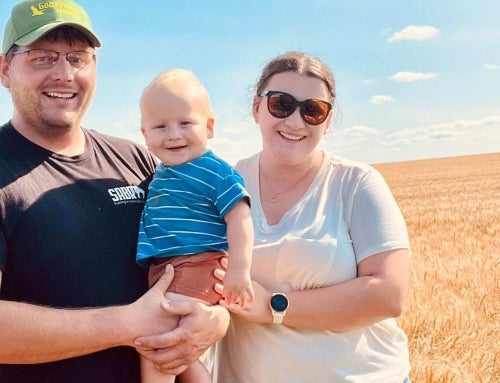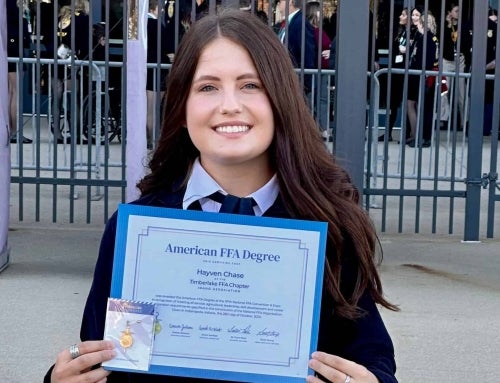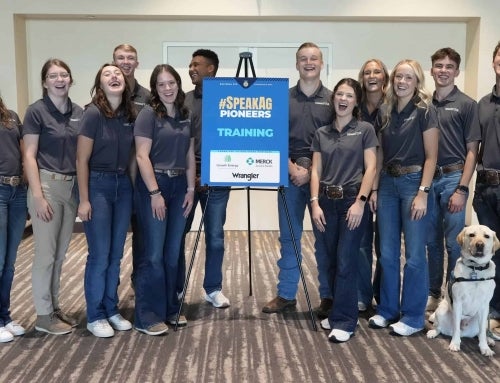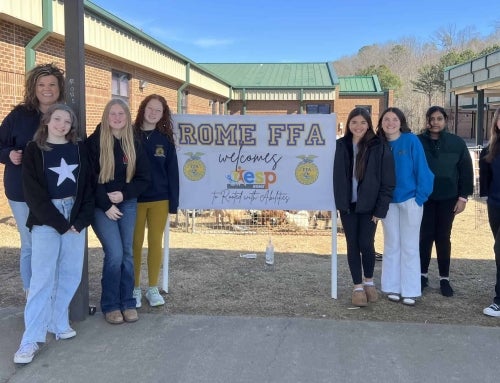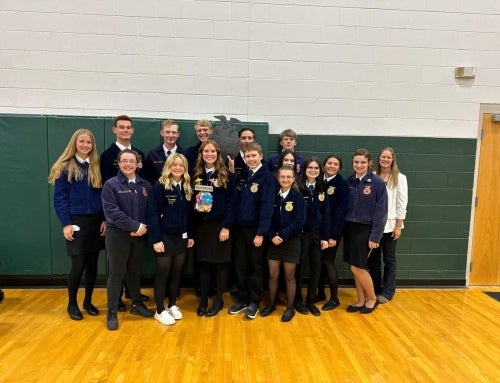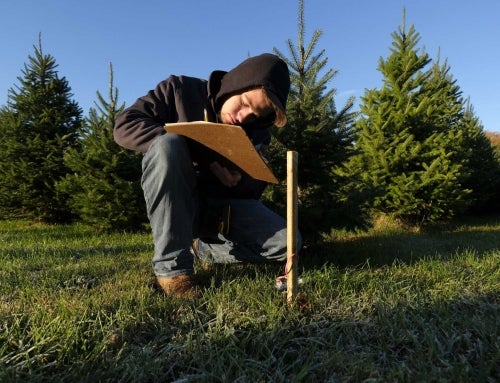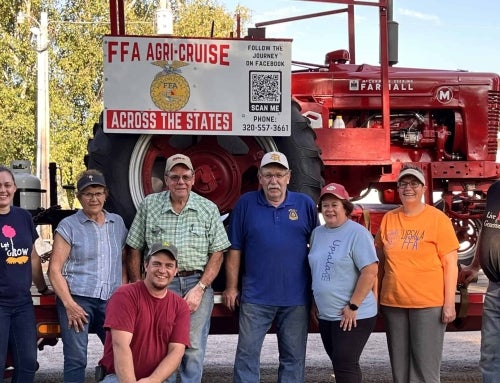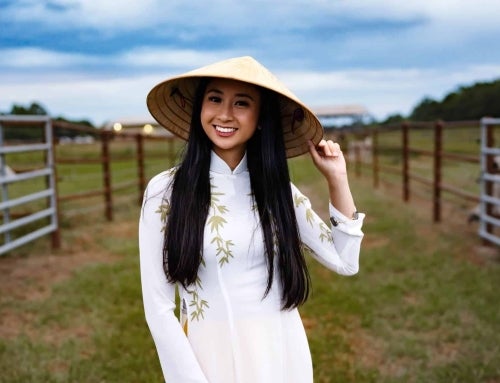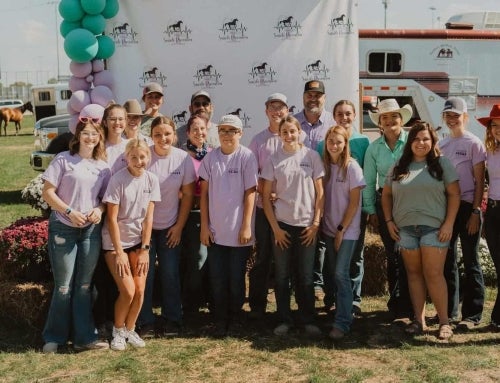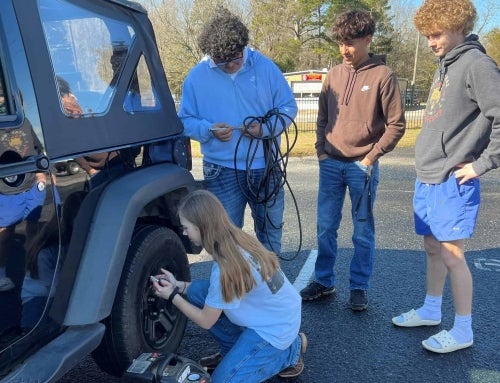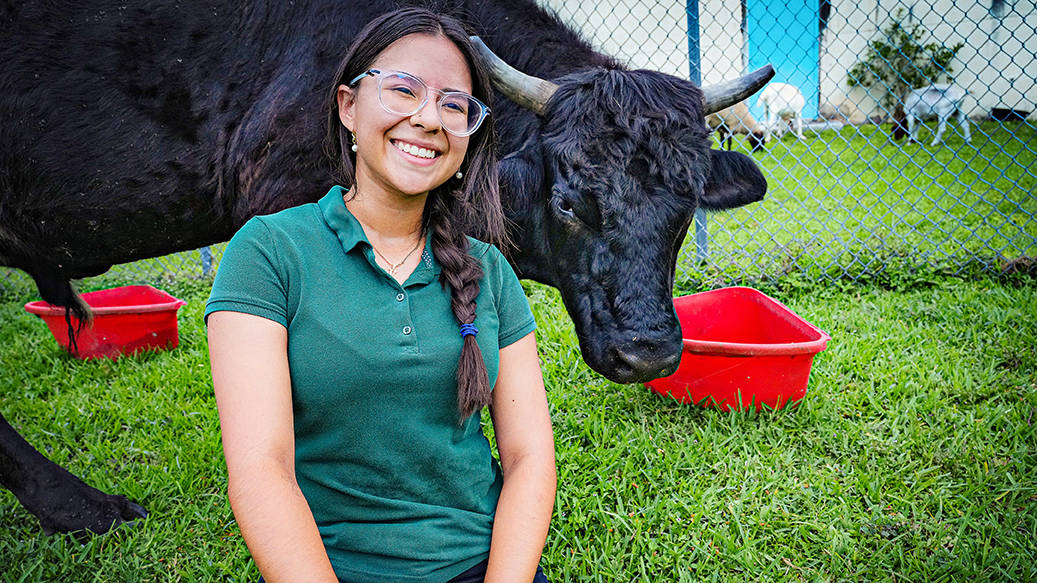
When Victoria Tovar was 7 years old, the family dog bit her. While her family rushed to her aid, upset with Snowy, Tovar’s response was one of defense and curiosity.
“It didn’t bother me that he bit me,” says Tovar, 10 years later. “I just wanted to learn why he reacted this way.”
Tovar realizes now she likely hurt Snowy when holding him by his stomach. At the time, the experience served as a surprising confirmation of Tovar’s interest in animals.
“It’s always been any animal I see; I instantly want to care for them,” she says. “It was always a vision I had.”
Today, that vision is shaping up in an unlikely way for the Florida teen, now focused on beef cattle and other livestock because of her experience with the Miami FFA Chapter in Florida.
Pursuing Ag Education
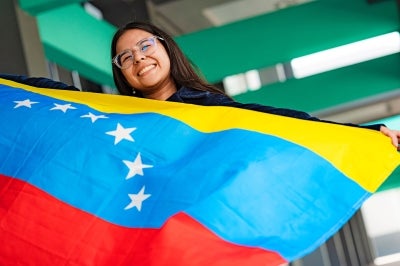 Tovar was born in Venezuela’s capital city, Caracas. Mountains surround the bustling urban center, separating it from the Caribbean Sea by less than 10 miles on the northern coast of South America. While Tovar recalls childhood friends with grandparents who raised livestock outside the city, her family was not involved in agriculture.
Tovar was born in Venezuela’s capital city, Caracas. Mountains surround the bustling urban center, separating it from the Caribbean Sea by less than 10 miles on the northern coast of South America. While Tovar recalls childhood friends with grandparents who raised livestock outside the city, her family was not involved in agriculture.
When she was 8 years old, Tovar moved to the United States, to another coastal city: Miami, Fla. Like Caracas, Miami seems an unlikely place to find agriculture. But, Tovar says, it was her destiny.
When Tovar was in fifth grade, her counselor learned of her dream to become a veterinarian and printed her a list of high schools in Miami with programs that prepare students for careers in animal science. Top of the list was the William H. Turner Technical Arts High School, which offers a veterinary assisting program through its Academy of Veterinary Science and Agriculture Technology (VSAT). Through the program, high school students graduate with Certified Veterinary Assistant (CVA) and agribusiness certifications.
Three years later, when it was time to apply for high school, Tovar had already put in requests for a couple of schools when she remembered her conversations with the counselor. She and her mom searched old files for the paperwork, finding it just in time to make a last-minute request for Turner Tech.
“I got in, and it was one of the best decisions I’ve ever made,” Tovar says.
Caring for Cattle
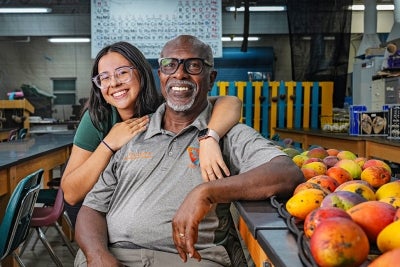 Turner Tech High School sits about 9 miles from downtown Miami, minutes from the beach. It’s not exactly prime ranchland, but the school offers urban students the opportunity to connect with livestock and food production through its on-campus greenhouse and farm with cattle, hogs, chickens, goats, lambs, rabbits and guinea pigs. Each student becomes an FFA member and can earn the chance to exhibit school animals at the Miami-Dade County Fair and Exposition.
Turner Tech High School sits about 9 miles from downtown Miami, minutes from the beach. It’s not exactly prime ranchland, but the school offers urban students the opportunity to connect with livestock and food production through its on-campus greenhouse and farm with cattle, hogs, chickens, goats, lambs, rabbits and guinea pigs. Each student becomes an FFA member and can earn the chance to exhibit school animals at the Miami-Dade County Fair and Exposition.
Tovar immediately wanted to start working with the livestock, but before being assigned a market animal project, her FFA advisor, Everal Miller, told his students: “You have to earn my trust. I have to see that you’re responsible.”
She started staying after school as soon as she could, nearly every day of her freshman year. “What can I do to help?” Tovar asked Miller and the upperclassmen working with their market animals. She was ready to do whatever was needed.
Miller gave her the responsibility of feeding goats and lambs. Every day, she would move the animals from their pens to a grazing area, feed them, clean their pens, then return them. She also “co-parented” a beef steer with an upperclassman, sparking her interest in cattle.
Typically, steers at Turner Tech are assigned to seniors with showing experience. But when Tovar asked Miller if she could work with and show one during her junior year, he simply said, “I’ll think about it.” A few weeks later, her name was posted on the list for steer projects.
“It was probably the best feeling I’ve ever had,” Tovar says.
Facing Challenges
At first, Tovar, who is 4 feet 11 inches tall, was a little scared to deal with the large animals.
“Having to deal with such big animals is a lot of work,” Tovar says, “but I actually like it more [than working with small animals] because I feel like it disciplines you.”
Having no personal experience with livestock, Tovar dove into research. She asked her teachers and classmates: “What are the best methods of working with these animals?” With time, Tovar learned how to care for livestock in a challenging environment. Southern Florida’s climate is tropical — hot, humid and susceptible to monsoons and hurricanes. She is careful to avoid overheating in the animals and can predict how they will react in different situations by observing their body posture.
“It takes time and lots of patience,” Tovar says.
Her first steer, an Angus- Charolais cross, was “the sweetest,” she says. Together, they won grand champion at the county fair in 2022. She gained a new steer with a more difficult temperament for her senior year. It took four months for her to be able to confidently touch that steer across its body, but the extra work paid off, she says. At market, the steer earned her $5 per pound, nearly double the previous year’s steer.
“I think it’s really cool to be able to raise these animals in such an amazing environment and then give to the community by feeding the world,” Tovar says.
For the Future
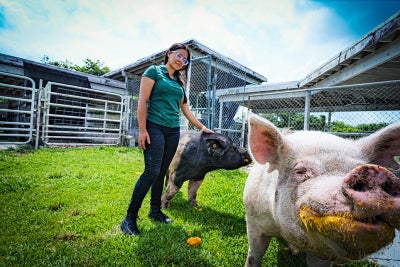 Tovar served as a Miami FFA Chapter officer for two years and, during her junior year of high school, she started organizing workshops to pass on lessons she had learned in the show barn. In a school where few come from families with livestock legacies, Tovar wanted to help create an environment in which everyone is welcome and equipped to succeed.
Tovar served as a Miami FFA Chapter officer for two years and, during her junior year of high school, she started organizing workshops to pass on lessons she had learned in the show barn. In a school where few come from families with livestock legacies, Tovar wanted to help create an environment in which everyone is welcome and equipped to succeed.
“Victoria has given unselfishly of her time and energy to the academy,” says Miller, VSAT academy leader and Miami FFA advisor. “Her strong drive to succeed and enthusiastic attitude are admirable, and I know they will propel her to do great things.”
Now in her first semester at Miami Dade College, Tovar is continuing to pursue her dream of becoming a veterinarian. Thanks to her FFA experiences, she wants to be a large-animal veterinarian and hopes to someday have a farm where urban students can go to learn about animal agriculture and show cattle.
“For me, it really was like this FFA jacket made me feel like I was where I belong,” Tovar says.
Tips for Talking About Animal Agriculture
Victoria Tovar lives in the most populous county in Florida. Of the 2.7 million people in Miami-Dade County, only about 20,000 are employed in agriculture. Even with less than 1% of the county involved in agriculture, the industry still contributes a whopping $2.7 billion in economic impact each year, according to the county’s website.
Even though agriculture is essential for life, Tovar has found herself among the few in Miami who appreciate it. Animal agriculture — her passion — is especially misunderstood, she says.
“When people ask me what I do, usually their reaction is: ‘That’s cruel. How can you raise animals for meat?’” Tovar says. Tovar does not allow people’s judgments to bother her, nor does she judge those who don’t understand agriculture. Instead, she shares her perspective calmly and respectfully. She offers these words of advice to others who might find themselves faced by someone negative about agriculture.
- KEEP A POSITIVE MINDSET. Remember, everyone has a different way of thinking. Try to understand their point of view.
- EDUCATE THEM. Instead of criticizing their way of thinking, find shared values and build on them with your knowledge and personal experiences. Show people solutions to the problems they are raising. For example, if they are concerned about animal abuse, share how you handle your livestock and why.
- DON’T LET THEM GET TO YOU. In life, not everyone will like you or what you do. But if it’s your passion and you know it is right, just keep going.
- FIND STRENGTH IN THE AGRICULTURE COMMUNITY. “I feel like the power we have together can influence more people around the world,” Tovar says. “It’s important to stick together and remember how important our job is to the world.”


